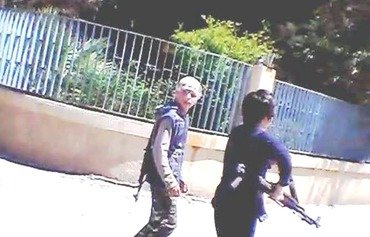A new report published Tuesday (October 11th) claims prisons in Europe are becoming "breeding grounds" for extremist groups, with the lines between crime and extremist groups becoming increasingly blurred, AFP reported.
Extremist and criminal groups are recruiting from the same pool, while their social networks also are converging, the International Centre for the Study of Radicalisation and Political Violence (ICSR) found, in what it dubbed a "new crime-terror nexus".
The emergence of the "Islamic State of Iraq and the Levant" (ISIL) has strengthened the link between crime and terrorism, according to the report, which examined the profiles of European extremist fighters recruited since 2011.
ISIL increasingly turns to "ghettos", prisons and "underclasses" to recruit individuals with a history of criminal behaviour, according to the "Criminal Pasts, Terrorist Futures: European Jihadists and the New Crime-Terror Nexus" study.
ICSR director Peter Neumann, one of the report's authors, said the lines between crime and extremist groups were becoming "increasingly blurred", with radicalization becoming faster in prisons because "a lot of these people have already been convicted of violent crime".
Researchers from the ICSR, based at King's College London, compiled profiles of 79 European extremists with criminal pasts, from Belgium, Britain, Denmark, France, Germany and the Netherlands. All had either traveled abroad to fight or been involved in terrorist plots in Europe.
Over the past five years an estimated 5,000 Western Europeans have traveled to the Middle East to join groups such as ISIL and Fatah al-Sham Front, the report said.
Of those studied, 57% had been incarcerated before being radicalised and at least 27% of those who spent time in prison were radicalised behind bars.
According to Neumann, the findings point to a shift in the way ISIL operates.
"We think ISIL no longer aspires to be a very theological organisation. It embodies the brutality, strength and power that these young people who were often members of gangs are looking for," he said. "It basically tells them 'you can continue to do all the things you did before, but now you can get into heaven'."







